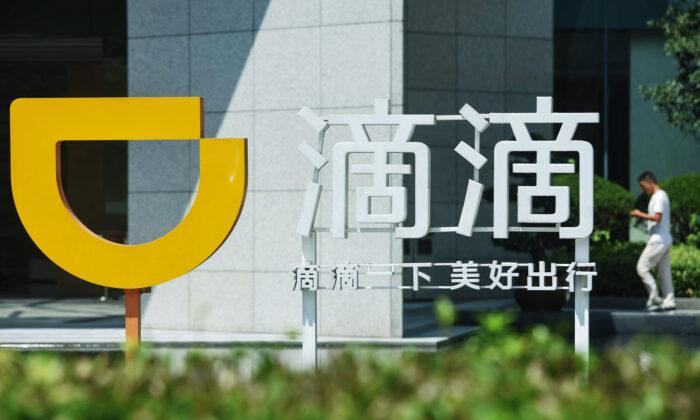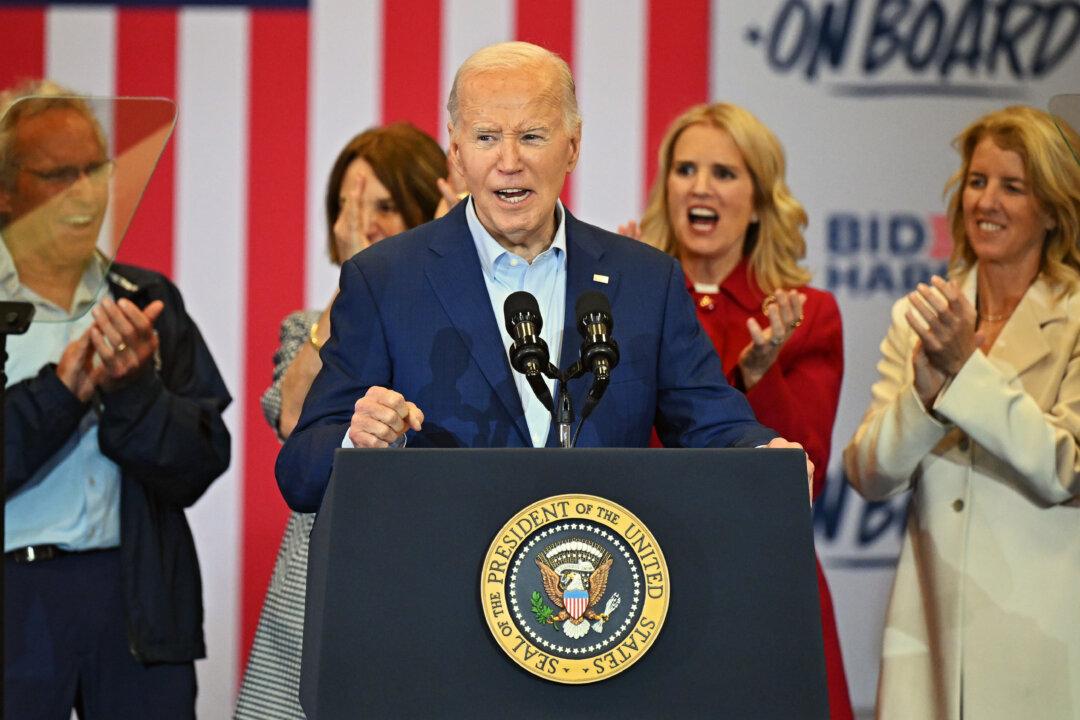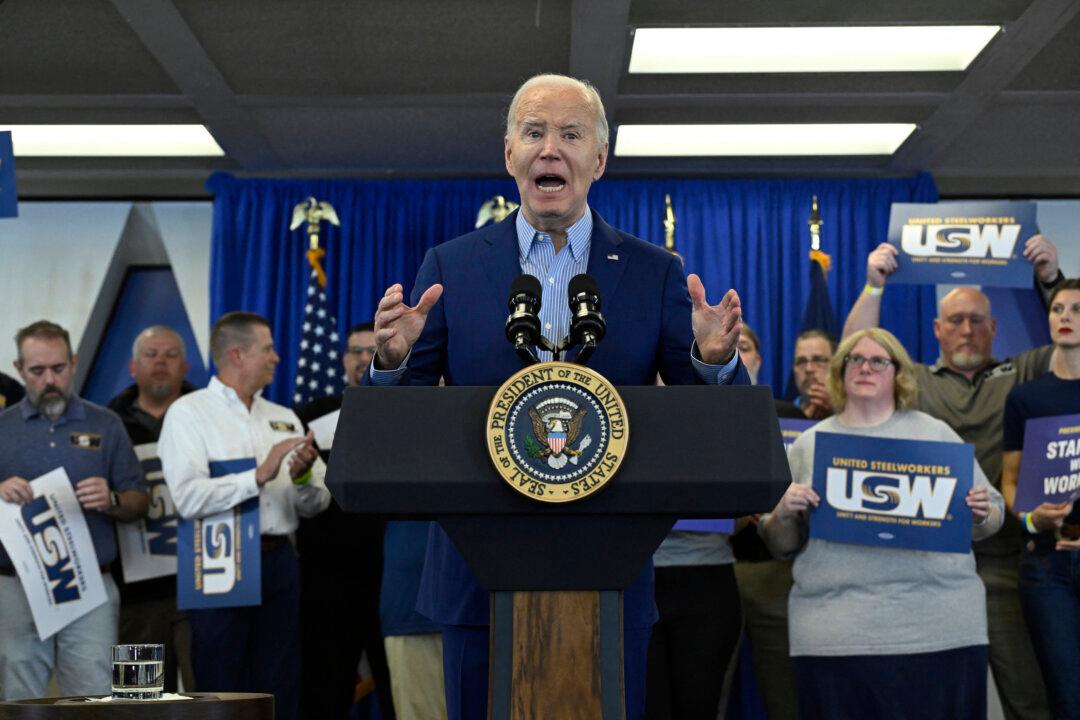WASHINGTON—American investors were steamrolled by Beijing again as the ride-hailing giant Didi Chuxing became the latest target of a clampdown by the communist regime just days after its debut on the New York Stock Exchange.
A Chinese cybersecurity regulator on July 2 announced that it was conducting a review on Didi. The officials banned the ride-hailing platform from app stores, saying the company had illegally collected and used personal data.
Investors reacted on July 6 when markets opened after a long holiday weekend. Shares of Didi Global Inc. (NYSE: DIDI) decreased more than 20 percent in morning trading in New York, losing more than $15 billion in market value.
U.S. lawyers are now preparing class-action lawsuits over Didi’s IPO to recover losses suffered by investors.
Dubbed “the Uber of China,” the company commands the largest market share in the country. Its prominent backers include Chinese tech giants Alibaba and Tencent, Japan’s SoftBank, Toyota, and Uber.
The ride-hailing platform isn’t the only company facing the wrath of the Chinese regime. China’s cybersecurity regulator on July 5 moved against more Chinese technology companies that had recently been listed in New York.
The government opened cybersecurity reviews into two subsidiaries of Full Truck Alliance Co. (NYSE: YMM), also known as Manbang. The startup, backed by investors including SoftBank and Tencent, had raised $1.6 billion in its public offering in June.
The regulators are also investigating Kanzhun Ltd. (NASDAQ: BZ), known as Boss Zhipin. The online recruitment platform, which is also backed by Tencent, had raised more than $900 million in its NASDAQ listing last month.
Along with Didi stock, shares of Full Truck Alliance, Kanzhun, Tencent, and other Chinese tech firms all fell on July 6.
The recent crackdown was a stark reminder for investors that the Chinese Communist Party (CCP) is still in charge of the country’s growing private sector.
“They are demanding all the private businesses to listen to what the Party says, or they would have no future,” Li Hengqing, a China expert based in Washington, told The Epoch Times.
Didi has been accused of transferring sensitive data to the United States. Li Min, Didi’s vice president, called these speculations “malicious rumors.”
“Like most Chinese firms listed overseas, Didi stores its Chinese user data on Chinese servers, and in no way would we hand the data to the United States,” Li wrote in a Chinese social media post on July 3.
‘They Just Want Money’
Despite intensifying regulatory scrutiny around China’s tech firms and ongoing political tensions between Washington and Beijing, Chinese companies are rushing to go public in the United States.Even as the U.S. Congress begins to tighten controls on China-based companies listed on U.S. exchanges, these companies continue to seek U.S. capital. Dozens more Chinese firms are expected to go public in the United States this year.
Shares of RLX Technology (NYSE: RLX), China’s largest e-cigarette maker, for example, plummeted more than 70 percent since its IPO, as regulators announced restrictions on e-cigarettes and other tobacco products.
“The CCP has and will continue to exert its control over every Chinese company, and Wall Street doesn’t care about the danger this risk poses to American investors,” Chris Iacovella, CEO of American Securities Association, said in an email.
“It is also hard to understand how CCP-controlled companies continue to trade in our markets, especially after what happened to Alibaba in December and now Didi. The post IPO timing the CCP used to exert control over Didi should be especially concerning to regulators,” he told The Epoch Times.
Didi’s recent share offering was the largest Chinese IPO since Alibaba Group raised $25 billion in 2014.
Alibaba also suffered historic losses after regulators had launched a probe into the company late last year. Its founder Jack Ma went missing for a few months as a result of the crackdown.
It was also “interesting” that the regulators launched the Didi probe on July 2, right after the CCP’s 100th anniversary, said Frank Tian Xie, a business professor at the University of South Carolina–Aiken.
“They definitely planned this long ago, but purposefully waited until after the Party’s 100-year celebration to do it,” he told The Epoch Times. These few days between Didi’s IPO and the probe means that Didi had the time to raise money, thus making the crackdown a more fatal blow.
It’s also possible that some Chinese authorities didn’t feel they got enough spoils out of Didi’s gains, he said.
“The CCP’s goal is not really about national security, they just want money.”
The Senate on June 22 passed the Accelerating Holding Foreign Companies Accountable Act to ratchet up pressure on U.S.-listed Chinese companies by requiring them to comply with U.S. audit standards within two consecutive years instead of three. The measure, sponsored by Sen. John Kennedy (R-La.), passed by unanimous consent.
The bill builds on the bipartisan Holding Foreign Companies Accountable Act that was signed into law last year to remove fraudulent and non-compliant companies from U.S. exchanges.
“The drop in the value of Didi shares further highlights that the Chinese Communist Party is perhaps the biggest threat facing U.S. investors today,” a Kennedy aide told The Epoch Times.







Friends Read Free